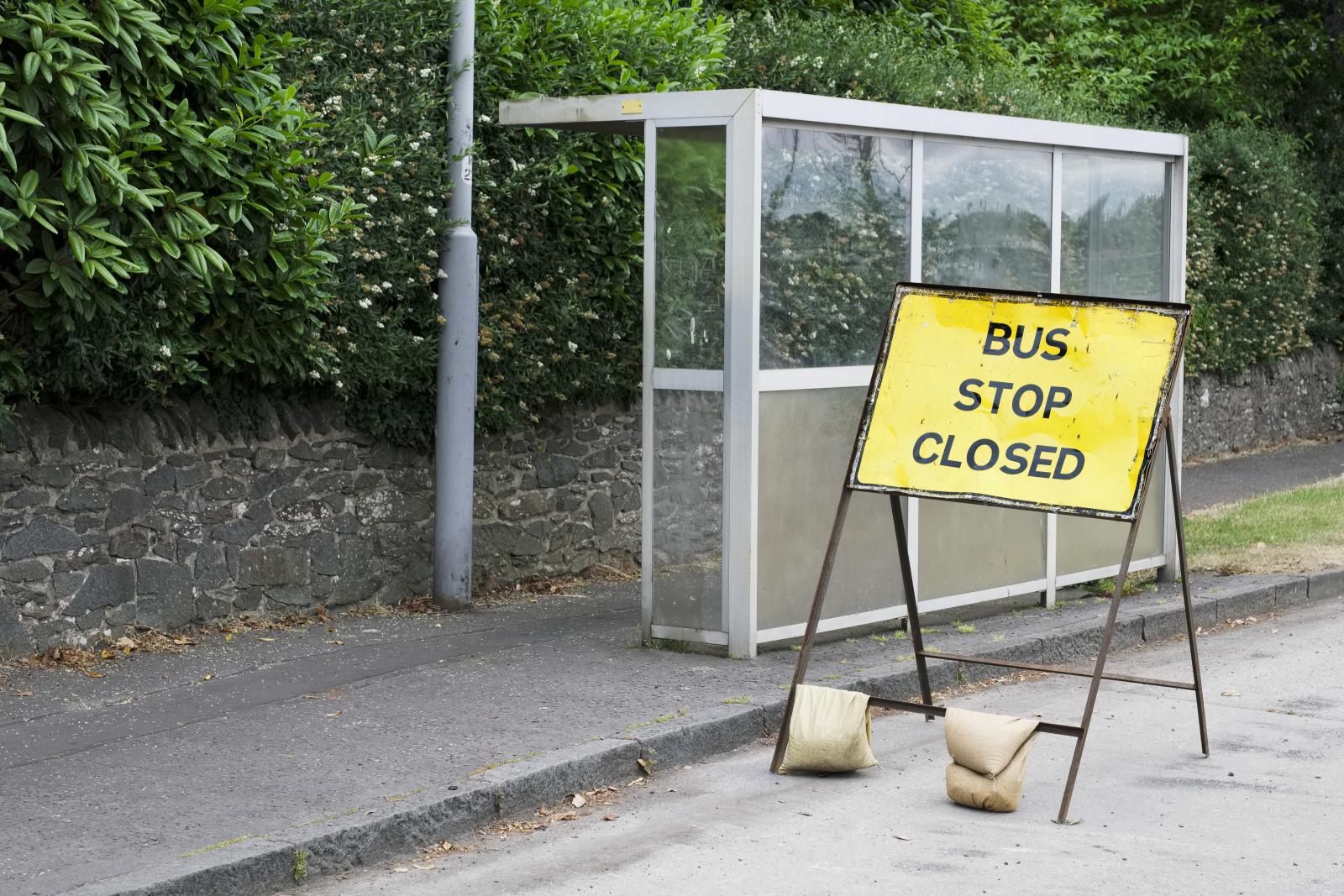Nearly one in three urban bus trips – some 300 million journeys - could be lost without further financial support from Government, report warns

The number of bus passengers in city regions outside London could be up to 30% lower than before the pandemic – a “similar magnitude” to the direct impact which COVID-19 itself has had on demand - if the Government does not extend its financial support for the bus.
That is the stark finding of a new report by consultants Steer for the Urban Transport Group, the network of city region transport authorities.
Government’s financial support for the bus (in England outside the capital), which has allowed transport authorities and bus operators to keep services running, is due to expire on 5 April.
The report - Continuing COVID Funding Support for Urban Public Transport – warns that bus patronage in the metropolitan areas could fall to 70% of pre-Covid levels within a year of funding ending (March 2023) due to a combination of service reductions, higher fares and changing travel habits.
Pre-pandemic, 901 million bus trips were made in city regions outside London (the metropolitan areas).
The report also projects that over a quarter (26%) of bus services could be lost without further funding.
It states:
“Once Government Covid-related financial support ceases at the end of March, operators will be faced with a position where their revenues are below pre-pandemic levels and their operating costs are similar, if not greater, than they were pre-pandemic. This position will not be financially sustainable. Bus operators are likely to respond by cutting services and increasing fares. This would lead to further decline in bus patronage.”
The report recommends that to stop any further decline, Government financial support should be extended for at least another year.
It models two funding scenarios for the metropolitan areas over the next year which would support the restoration of bus patronage. These suggests that:
- £245 million would be needed to maintain bus patronage at 85% of pre-pandemic levels
- £450 million would be needed for bus patronage get closer to pre-pandemic levels (95%)
Given that the Government’s support for urban public transport since the start of the pandemic has averaged at around £1 billion per year, the level of support needed to stop further decline after the current funding expires would be less than the level of support provided previously.
The report concludes:
“Investing now in revenue support to maintain patronage has the potential to be more cost effective than paying later to invest in capital schemes intended to try and get that demand back. Further financial support would also create the opportunity for Government to reform its approach to supporting public transport funding such this is used to the best effect... It would allow time for there to be a debate about how in the medium to long term, the public sector supports public transport provision with the goal of levelling-up and decarbonising the country’s transport network and supporting wider economic, social and environmental policy goals.”
Laura Shoaf, Chair of the Urban Transport Group, and Chief Executive at West Midlands Combined Authority, said:
“We are standing on the precipice of a huge reduction in bus services, which could deal a devastating blow to passengers who rely upon them. Once public transport patronage is lost, it is very hard to get back, and we are facing a vicious circle of decline whereby reduced bus networks lead to services being less attractive or buses simply not being available, which forces operators to raise fares, further reducing passenger numbers.
“As the modelling in this report shows, there is a solution to stemming the decline in bus patronage, which is for Government to extend its current financial support beyond March. Only this action will secure vital bus services which are under threat, allow patronage to recover, and ensure that the bus can contribute to Government’s aspirations around levelling-up and decarbonisation.”
The report also addresses light rail. Patronage on light systems has been reduced by the pandemic and these systems are also currently reliant upon Government financial support which expires at the end of March. While the report does not undertake detailed assessment of the impact of the pandemic on future light rail patronage, it expects that, like bus, by this summer patronage will still be less than pre-pandemic levels – though this will vary from system to system.
The report recommends “further bespoke arrangements” are put in place for each of the country’s light rail schemes, with financial support to continue for another year.

